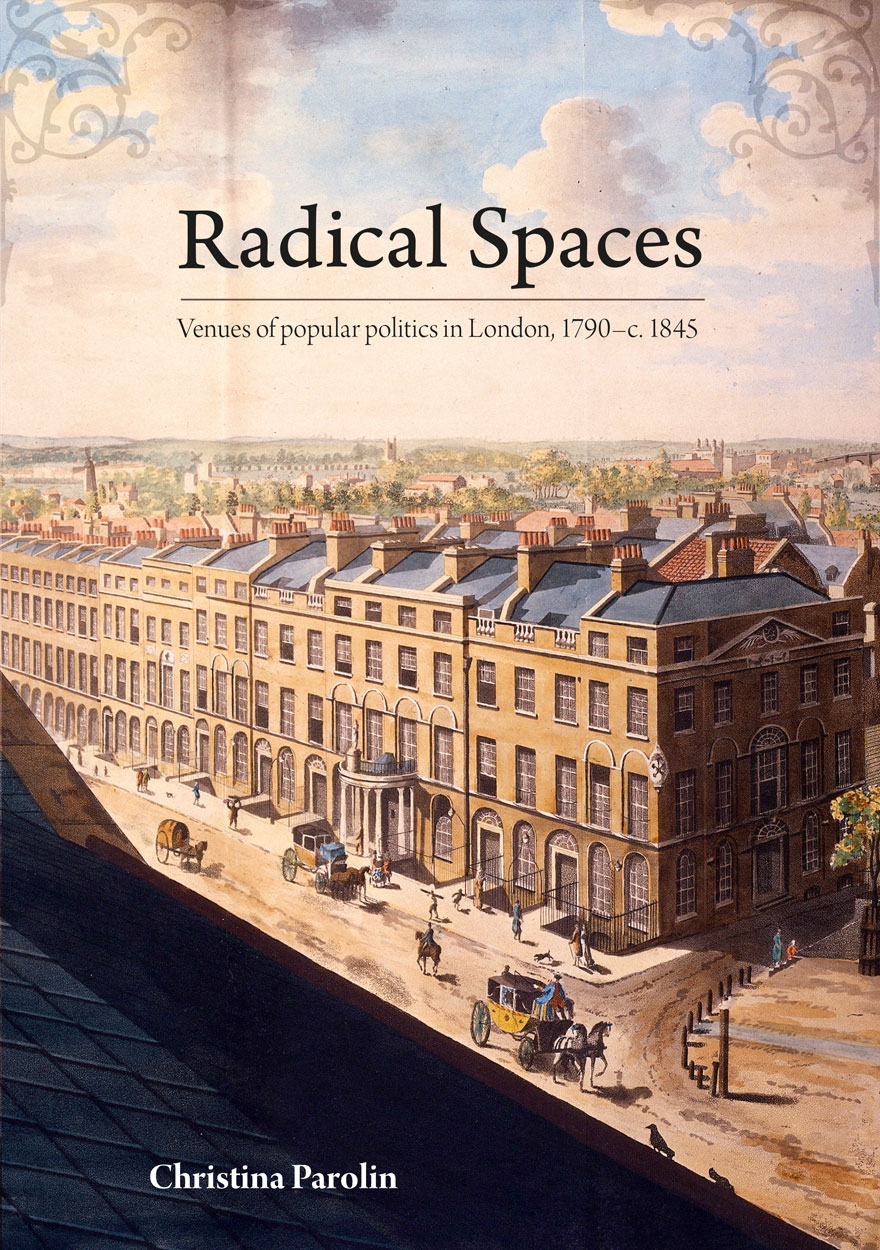Search titles (original) (raw)
Christina Parolin

Dr Christina Parolin researches in the field of early nineteenth century British radicalism. In 2009, she was awarded the J. G. Crawford Prize for her study, Radical Spaces, which explores the connection between architecture and space and popular radical culture in early 19th century London. During 2010-11 she held a Visiting Fellowship at the Humanities Research Centre, The Australian National University. Christina is currently the Executive Director of the Australian Academy of the Humanities.
Her publications include: ‘The ‘She-Champion of Impiety’: a case study of female radicalism’ in M.T Davis and Paul. A Pickering (eds), Unrespectable Radicals? Popular Politics in the Age of Reform, Ashgate, 2008; ‘Let us have truth and liberty’: contesting Britishness and Otherness from the prison cell, London 1820-26’, Humanities Research, vol xiii, no.1 2006, pp.71-84; and Michael Davis, Iain McCalman, Christina Parolin (eds) Newgate in Revolution: An anthology of Radical Prison Literature in the Age of Revolution, Continuum Press, London, 2005. Her latest publication is Radical Spaces: Venues of Popular Politics in London 1790-c.1845, ANU Press, 2010.

Radical Spaces »
Venues of popular politics in London, 1790–c. 1845
Publication date: December 2010
Radical Spaces explores the rise of popular radicalism in London between 1790 and 1845 through key sites of radical assembly: the prison, the tavern and the radical theatre. Access to spaces in which to meet, agitate and debate provided those excluded from the formal arenas of the political nation–the great majority of the population–a crucial voice in the public sphere. Radical Spaces utilises both textual and visual public records, private correspondence and the secret service reports from the files of the Home Office to shed new light on the rise of plebeian radicalism in the metropolis. It brings the gendered nature of such sites to the fore, finding women where none were thought to gather, and reveals that despite the diversity in these spaces, there existed a dynamic and symbiotic relationship between radical culture and the sites in which it operated. These venues were both shaped by and helped to shape the political identity of a generation of radical men and women who envisioned a new social and political order for Britain.

Humanities Research: Volume XIII. No. 1. 2006 »
Britishness & Otherness
Publication date: November 2006
Humanities Research is an internationally peer-reviewed journal published by the Research School of Humanities at The Australian National University. The Research School of Humanities came into existence in January 2007 and consists of the Humanities Research Centre, Centre for Cross-Cultural Research, National Europe Centre and Australian National Dictionary Centre. Launched in 1997, issues are thematic with guest editors and address important and timely topics across all branches of the humanities. This issue of Humanities Research presents a selection of papers offered to the ‘Britishness & Otherness: Locating Marginal White Identities in the Empire’ symposium, convened at the Humanities Research Centre at The Australian National University in July 2004. The symposium was designed to provoke a more sustained and nuanced contemplation of the mechanisms by which a plethora of British identities circulated within the Empire. Moreover, participants were encouraged to question the assumption that ‘Britishness’ was a static cultural identity accessed easily and equally by all phenotypically similar (i.e. white skinned) subjects of the British Empire. Award winner The Coalition for Western Women’s History, has awarded Sarah Carter’s article “Britishness, ‘Foreignness’, Women and Land in Western Canada 1890s-1920s” in Humanities Research Vol XIII. No. 1. 2006, the 17th Annual Joan Jensen – Darlis Miller Prize for the best article published in 2006 in the field of History of Women and Gender in the Trans-Mississippi West.
